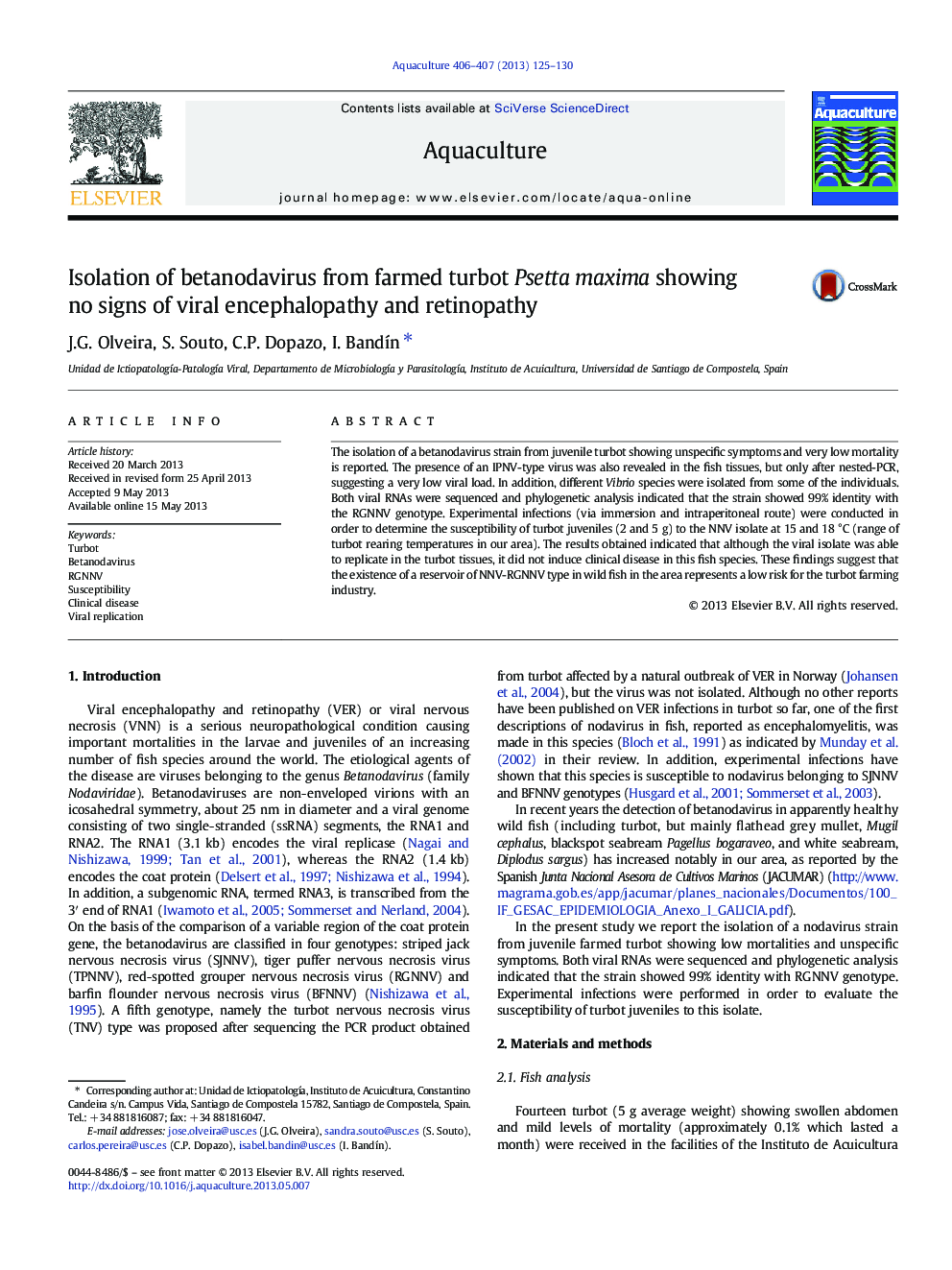| Article ID | Journal | Published Year | Pages | File Type |
|---|---|---|---|---|
| 8495575 | Aquaculture | 2013 | 6 Pages |
Abstract
The isolation of a betanodavirus strain from juvenile turbot showing unspecific symptoms and very low mortality is reported. The presence of an IPNV-type virus was also revealed in the fish tissues, but only after nested-PCR, suggesting a very low viral load. In addition, different Vibrio species were isolated from some of the individuals. Both viral RNAs were sequenced and phylogenetic analysis indicated that the strain showed 99% identity with the RGNNV genotype. Experimental infections (via immersion and intraperitoneal route) were conducted in order to determine the susceptibility of turbot juveniles (2 and 5 g) to the NNV isolate at 15 and 18 °C (range of turbot rearing temperatures in our area). The results obtained indicated that although the viral isolate was able to replicate in the turbot tissues, it did not induce clinical disease in this fish species. These findings suggest that the existence of a reservoir of NNV-RGNNV type in wild fish in the area represents a low risk for the turbot farming industry.
Related Topics
Life Sciences
Agricultural and Biological Sciences
Aquatic Science
Authors
J.G. Olveira, S. Souto, C.P. Dopazo, I. BandÃn,
